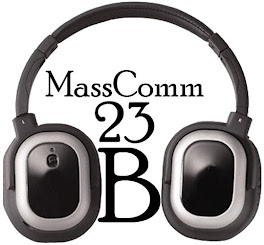An expert shares her view on Interviewing:
http://en.allexperts.com/q/Journalism-newspapers-magazines-2494/Interview-techniques.htm
Expert: Carolyn Bahm - 10/22/2006
Question
Hi, I've tried to do different styles of interviewing and can't think of any other than being straight forward and reading from a script. I'm also trying to find another journalist to interview and learn from. Can you help me?
Get the answer below
Answer
Hi, Amber,
My ability to advise you depends on whether you're in print or broadcast journalism. My experience is exclusively in print. Let me know and I'll try to write a more detailed answer for you. But in general, here are a few tips to get you started.
1 - Plan ahead so that you use the interviewee's time wisely. Know as much as possible about the person before you sit down for the interview. It's an insult and a timewaster to ask information that you could have gotten in advance by asking the person to send you a resume, CV or clippings of previous coverage -- or by doing some advance research yourself.
2 - Plan out a rough list of what you want to ask. It shouldn't be a rigid script, because sometimes the person's answers will take you in an unexpected direction that's better than what you planned. But have an idea of the key points you want to address and a rough order of the questions. Focus primarily on questions that require more than a yes/no answer, and try to ask even the hard questions in a sympathetic manner. Also -- even if you're trying to follow a list of questions -- try to let the segues to different questions arise naturally so that it feels to the other person more like a conversation than being expertly grilled.
3 - Keep a comfortable level of eye contact for the other person. Let your face be relaxed and your body's position convey interest -- but not interest so intense that the person begins to feel like a steak in front of a hungry vulture. It's a delicate balance. Just remember that most people are either nervous or wary of being interviewed; they're putting a lot of trust in you by consenting to let you represent them in print. Do them the courtesy of trying to put them at ease.
4 - Don't rush to fill in the silences. Develop a repertoire of interested nods, puzzled glances, "hmm's" and other verbal and visual clues that you want the other person to elaborate. And when all else fails, you can continue to ask leading questions, like, "Can you tell me more about that?" or "How interesting. Can you help me put that in context with what else was going on at the time in your life?"
5 - Listening to what the other person is saying is only half the story. Look at his/her mannerisms, listen to the volume and steadiness of the person's voice, notice how he/she has dressed and groomed himself/herself, and notice details of the surroundings. I always prefer to meet in the person's home or office (as long as I feel safe with them) so that they can feel more comfortable on their own turf.
6 - Try to make your writing as unobtrusive as possible. I usually write with the tablet in my lap and my eyes on the person as much as possible. If you let the interview remain conversational and pleasant, people often will relax and chat much more naturally.
7 - Look over a news story that you particularly admire. Think of the specific and the general questions that the journalist had to ask in order to get that information. Try to think of what a logical order of those questions would be. Model your own interviews on the insights you glean from this.
Hope those tips help. Let me know more details about your type of stories, what kind of publication you'll be printing them in, etc., and I'll try to be more specific.
Best wishes! - Carolyn
Subscribe to:
Post Comments (Atom)

No comments:
Post a Comment